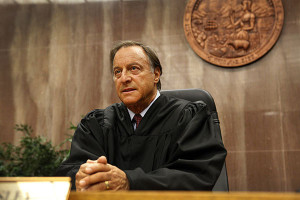Good news: The NBC San Francisco affiliate investigative report on the court backlog (see July 24 post below) is getting some increased attention online and the reporter, Stephen Stock, is continuing the conversation on Twitter. The Twitter conversation even includes some high-profile judges.
Recent Tweets include “CA ct backlog: collection filings can take anywhere from 5 months to 32 months!!! depending on which court” and “court backlog DEFINITELY affects tenant/landlord disputes!”
Stock and the “Bay Area Investigative Unit” took a look behind the usual reporting on numbers and “official voices” and reported on the stories of actual people. They highlighted a mother who has been waiting for her day in court for three years – over custody of her children.
